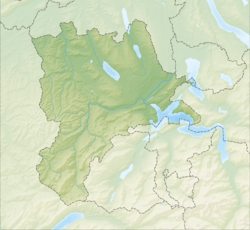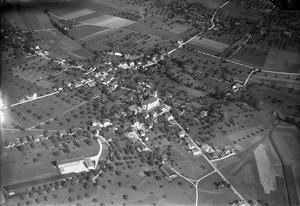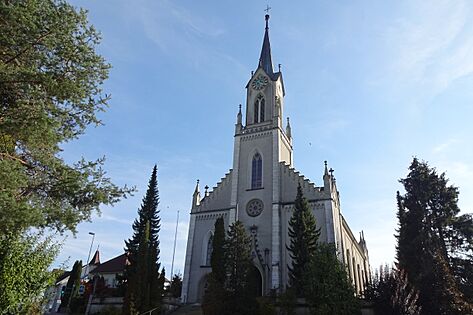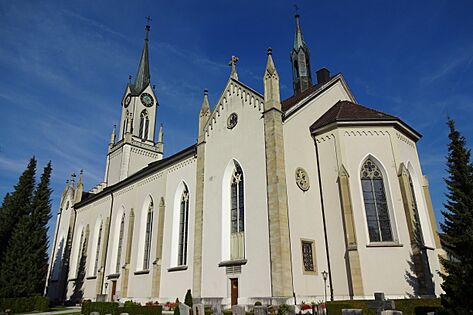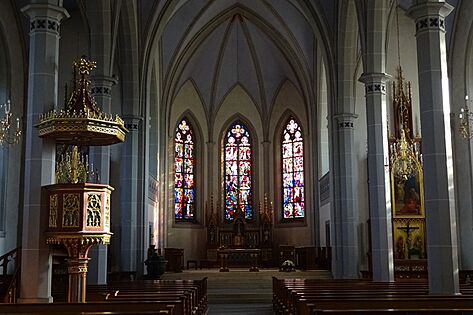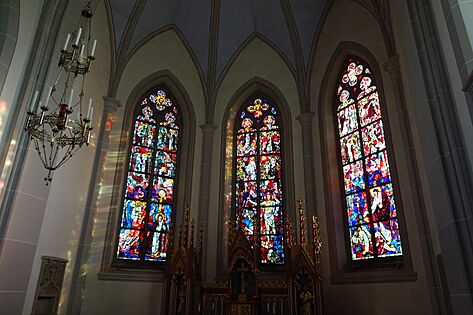Grosswangen facts for kids
Quick facts for kids
Grosswangen
|
||
|---|---|---|
|
||
| Country | Switzerland | |
| Canton | Lucerne | |
| District | Sursee | |
| Area | ||
| • Total | 19.7 km2 (7.6 sq mi) | |
| Elevation | 585 m (1,919 ft) | |
| Population
(Dec 2020 )
|
||
| • Total | 3,293 | |
| • Density | 167.2/km2 (432.9/sq mi) | |
| Postal code |
6022
|
|
| Surrounded by | Buttisholz, Ettiswil, Mauensee, Menznau, Oberkirch, Willisau | |
Grosswangen is a small town, also called a municipality, located in the Sursee district. It is part of the canton of Lucerne in Switzerland.
Contents
History of Grosswangen
Grosswangen was first mentioned in old records way back in the year 893. At that time, it was known by the name Wanga.
Geography and Land Use
Grosswangen covers an area of about 19.7 square kilometers (which is about 7.6 square miles). A large part of this land, about 78%, is used for farming. This means there are lots of fields and pastures.
Around 15% of the area is covered by forests. The remaining land is where buildings and roads are located, making up about 6% of the town. A very small part, less than 1%, includes rivers or other natural areas that are not used for farming or building.
The town is situated in a valley called the lower Rottal. Grosswangen is made up of several smaller areas or sections. These include Innerdorf, Oberdorf, Roth, Sigerswil, and Stettenbach.
Population and People
Grosswangen has a population of 3,293 people. As of 2007, about 11% of the people living in Grosswangen were from other countries. Over the past ten years, the number of people living here has grown by about 8%.
Most people in Grosswangen speak German, which is about 93.6% of the population. The second most common language is Albanian, spoken by about 3.9% of the people. Portuguese is the third most common language, spoken by about 0.5%.
Age Groups in Grosswangen
The population of Grosswangen is spread across different age groups. About 27.8% of the people are young, aged 0 to 19 years old. Another 27.4% are young adults, aged 20 to 39 years old.
The largest group, about 32.9%, are adults aged 40 to 64 years old. Older adults, aged 65 to 79, make up about 8.1% of the population. People aged 80 to 89 years old are about 3.4%, and a very small number, 0.4%, are 90 years or older.
Education and Homes
Most people in Switzerland are well-educated. In Grosswangen, about 70.7% of adults aged 25 to 64 have finished high school or gone on to higher education. This includes university or a special college called a Fachhochschule.
In 2000, there were 905 homes in Grosswangen. About 24% of these homes had only one person living in them. Around 20% were larger homes with five or more family members. Most of the buildings were homes, with some being mixed-use (meaning they had both homes and businesses).
Work and Jobs
Grosswangen has a low unemployment rate, which means most people who want to work can find jobs. In 2005, many people worked in farming, which is called the primary economic sector. There were also jobs in manufacturing and construction, known as the secondary sector.
Many people also worked in the tertiary sector. This sector includes jobs like teaching, healthcare, retail, and other services. In 2000, about 50.9% of the people in Grosswangen were employed. Women made up 40% of the working population.
Religious Beliefs
In 2000, most people in Grosswangen, about 86.3%, were Roman Catholic. About 4.8% were Protestant. There were also people who followed other Christian faiths or were Muslim. Some people did not belong to any organized religion or chose not to answer.
Historical Population Figures
This table shows how the population of Grosswangen has changed over many years:
| year | population |
|---|---|
| 1745 | 1,540 |
| 1810 | 1,842 |
| 1850 | 2,724 |
| 1900 | 2,035 |
| 1950 | 2,436 |
| 1970 | 2,213 |
| 2000 | 2,713 |
Images for kids
See also
 In Spanish: Grosswangen para niños
In Spanish: Grosswangen para niños




